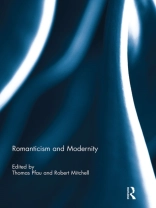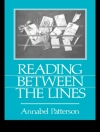Though traditionally defined as a relatively brief time period – typically the half century of 1780-1830 – the "Romantic era" constitutes a crucial, indeed unique, transitional phase in what has come to be called "modernity, " for it was during these fifty years that myriad disciplinary, aesthetic, economic, and political changes long in the making accelerated dramatically. Due in part to the increased velocity of change, though, most of modernity’s essential master-tropes – such as secularization, instrumental reason, individual rights, economic self-interest, emancipation, system, institution, nation, empire, utopia, and "life" – were also subjected to incisive critical and methodological reflection and revaluation. The chapters in this collection argue that Romanticism’s marked ambivalence and resistance to decisive conceptualization arises precisely from the fact that Romantic authors simultaneously extended the project of European modernity while offering Romantic concepts as means for a sustained critical reflection on that very process. Focusing especially on the topics of form (both literary and organic), secularization (and its political correlates, utopia and apocalypse), and the question of how one narrates the arrival of modernity, this collection collectively emphasizes the importance of understanding modernity through the lens of Romanticism, rather than simply understanding Romanticism as part of modernity.This book was previously published as a special issue of European Romantic Review.
Robert Mitchell & Thomas Pfau
Romanticism and Modernity [PDF ebook]
Romanticism and Modernity [PDF ebook]
购买此电子书可免费获赠一本!
语言 英语 ● 格式 PDF ● 网页 256 ● ISBN 9781317978657 ● 编辑 Robert Mitchell & Thomas Pfau ● 出版者 Taylor and Francis ● 发布时间 2014 ● 下载 3 时 ● 货币 EUR ● ID 7119663 ● 复制保护 Adobe DRM
需要具备DRM功能的电子书阅读器












